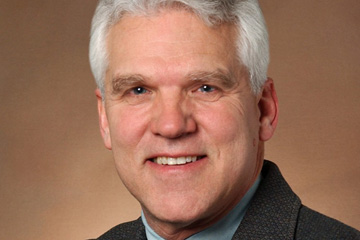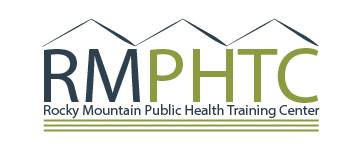
By University Communications
AURORA, Colo.—The Colorado School of Public Health (ColoradoSPH) has been awarded federal funding to be one of 10 regional Public Health Training Centers dedicated to building the capacity of the nation's public health workforce.
The funding will provide $850,000 per year for the next four years—a commitment of $3.4 million. For the past four years, ColoradoSPH housed one of 37 Public Health Training Centers in the nation. It provided in-person and online continuing education to the public health workforce in Colorado. The Health Resources and Services Administration decided to reduce the training centers to just 10 nationwide.
ColoradoSPH applied to the competitive process to be a regional center, got selected into the elite group and has now expanded to become the Rocky Mountain Public Health Training Center (RM-PHTC). The center will serve a six-state region of Colorado, Wyoming, Utah, Montana, North Dakota, South Dakota and 32 Tribal Nations. Those states comprise Region 8 of the U.S. Department of Health and Human Service.
"We'll collaborate with people in state and local health agencies, as well as people in NGOs (non-governmental organizations), hospitals and community clinics," said Dr. Tim Byers, MD, MPH, and director of the RM-PHTC. "Our challenge is to create, market and evaluate trainings that will be largely online, but also trainings that will involve creation of bi-directional video groups like Google Hangout—methods where we can bring people together with video."
The goal is to work collaboratively to develop educational opportunities that support partners in reaching their priority health outcomes.

The RM-PHTC will work with partners such as the Utah School of Medicine's Division of Public Health, a hospital network in Wyoming, AHECs (Area Health Education Centers) in Montana, and a community clinics organization in North Dakota and South Dakota. "The purpose is to shore up and improve the capacity and abilities of people with population health improvement-orientation to do a better job in regard to disease prevention and control," Byers said.
In addition to providing state-of-the-art general health workforce development, each of the 10 regional centers will offer a specialty area of expertise. "Ours will be cancer prevention," said Byers, who is also the associate director of the CU Cancer Center. "We'll cover all topics of public health, but we'll also be developing trainings on early detection, cancer screenings and prevention."
Laurie Schneider, MPH, will serve as coordinator of the RM-PHTC and, in order to serve a diverse set of learners, the regional center will add instructional technicians, video specialists and new faculty members.
The RM-PHTC will also serve 32 sovereign tribes across the six states. "We'll make a special effort to collaborate with tribal nations to make sure the public health training we deliver is relevant to their needs and professionals," Byers said.
The RM-PHTC will also provide linkages between the public health and health care providers for population health improvement as outlined in the Affordable Care Act.
###
Contact: christopher.casey@ucdenver.edu
